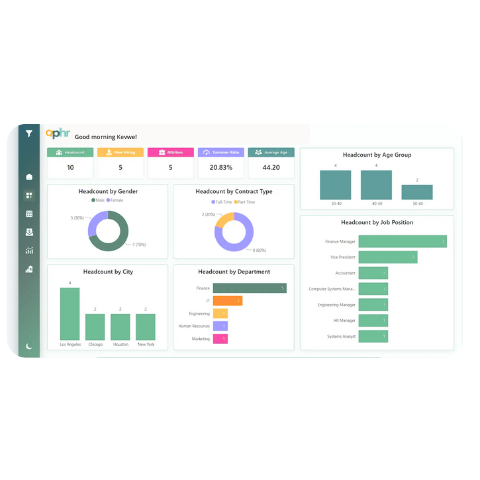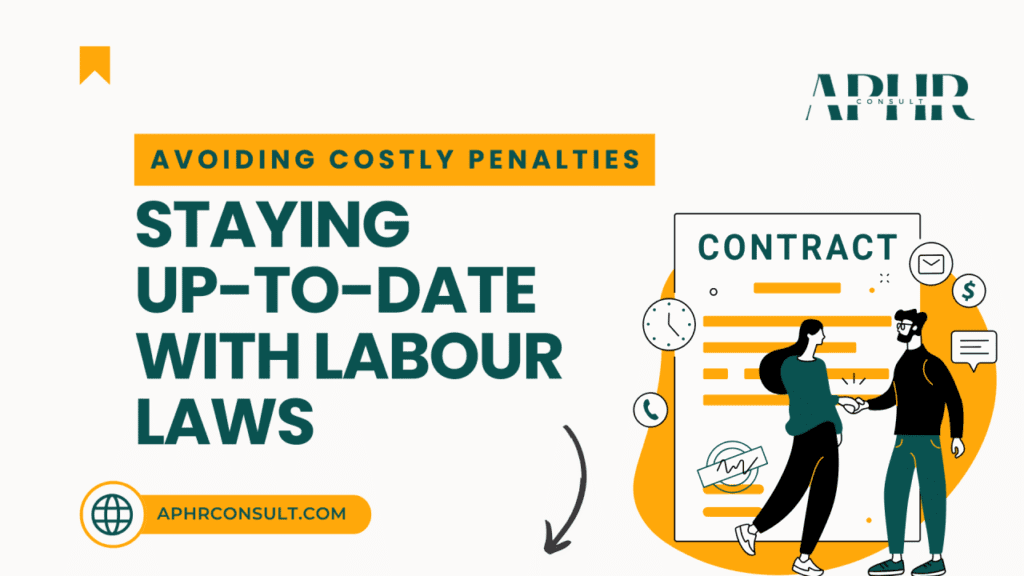Avoiding Costly Penalties: Staying Up-to-Date with Labour Law
In Nigeria’s complex and evolving labour landscape, compliance with labour laws is crucial for businesses to avoid costly penalties and reputational damage. Employers often focus on operational goals but neglecting legal obligations can lead to severe consequences, including fines, litigation, and loss of business goodwill. Staying informed and proactive in labour law compliance isn’t just a legal necessity—it’s a strategic move that protects both employer and employee interests.
Here are key areas in Nigerian labour laws that businesses must prioritize to remain compliant and avoid costly penalties:
- Minimum Wage Compliance:
The National Minimum Wage Act mandates a minimum wage, ensuring that employees are compensated fairly for their work. Failing to meet this wage standard can lead to significant penalties. Nigeria’s National Minimum Wage (Amendment) Act of 2024 has raised the minimum wage to 70,000 Naira per month. This amendment, effective retroactively from May 1, 2024, was signed into law by President Bola Tinubu in July.
- Employment Contracts and Termination Procedures:
A written employment contract is not just a formality; it is a legal requirement that defines the terms of employment, helping prevent disputes and misunderstandings. The Nigerian Labour Act stipulates that every employee must have a contract, detailing wages, hours, and job responsibilities. Proper termination procedures are crucial, as failure to follow due process could lead to wrongful termination claims, emphasizing the need for employers to act within legal frameworks.
- Employee Welfare and Workplace Safety:
Under the Labour Act and the Employee’s Compensation Act, employers are obligated to maintain a safe working environment and provide basic welfare measures. This responsibility extends beyond physical safety to include mental well-being. Non-compliance with safety regulations can lead to worker injury claims, workplace disruptions, and penalties from the government.
- Compliance with Working Hours and Leave Entitlements:
Labour laws in Nigeria specify permissible working hours and mandatory leave entitlements, including annual leave, maternity leave, and sick leave. Ignoring these entitlements or overworking employees can expose companies to legal action.
- Payroll Tax Compliance:
Employers in Nigeria are responsible for deducting and remitting payroll taxes and contributions, such as the Pension Fund, National Housing Fund, and other statutory deductions. Failure to comply with these obligations exposes businesses to fines and interest penalties.
- Equal Treatment and Anti-Discrimination:
The Nigerian Constitution and labour laws prohibit discrimination based on gender, religion, or ethnicity. Employers should implement clear anti-discrimination policies and regularly audit their practices to prevent biases that could lead to lawsuits and reputational damage.
Staying compliant with Labour laws in Nigeria is a continuous process that demands vigilance and proactivity. Employers must regularly review their HR policies, monitor regulatory updates, and ensure staff training to meet these legal standards. By fostering a compliant work environment, businesses can avoid costly penalties, foster employee loyalty, and establish a reputation as a responsible employer.
At APHR Consult, we understand that navigating Labour laws can be complex. Our team is committed to helping businesses develop compliant HR policies and systems that align with Nigerian labour regulations.
Reach out to us at hello@south.aphrconsult.com to ensure your organization remains compliant and competitive in Nigeria’s dynamic business environment.
✍🏾Written by Folashade Oyetunji
Similar Articles
FROM HUMAN RESOURCES TO HUMAN IMPACT: HR as the Engine …
Accelerating Action: Practical HR Strategies for Gender Equity International Women’s …
The Cost of Losing Top Talent and How to Prevent …




